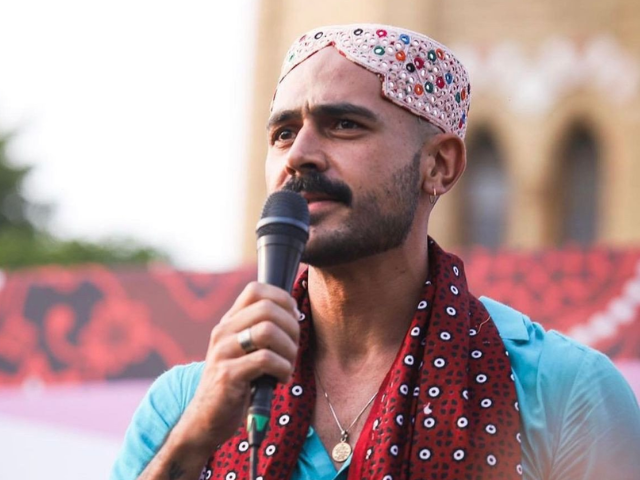Zulfiqar Ali Bhutto Jr., grandson of former Prime Minister Zulfiqar Ali Bhutto, at a press conference held at his ancestral home, 70 Clifton, Karachi, declared his independent entry into politics, distancing himself from the Pakistan Peoples Party (PPP) and announcing plans to form a new political party alongside his sister, Fatima Bhutto.
Criticizing the PPP as a “hijacked” entity under the “Zardari League,” he vowed to revive the original ideals of equality and people’s development championed by his grandfather and father, Mir Murtaza Bhutto.
Bhutto Jr. revealed that the new party, whose name is still under consideration, will focus on restoring dignity and justice for Pakistan’s marginalized communities.
“We reject the Zardari League. The PPP no longer represents the vision of Shaheed Zulfiqar Ali Bhutto or Shaheed Mir Murtaza Bhutto,” he stated, accusing the current PPP leadership of turning the party’s iconic “Jeay Bhutto” slogan into a tool for corruption.
He emphasized that the new party will champion farmers, laborers, and youth, with a commitment to contest elections across all provinces, including from Lyari, a traditional PPP stronghold in Karachi.
Addressing the crisis in Lyari, Bhutto Jr. criticized the provincial PPP government for neglecting its residents.
“Nearly 150 buildings in Lyari have been sealed, leaving people homeless. I’m here for the victims of the Baghdadi incident.
They are not begging—they are demanding their rights,” he said, urging the government to prioritize housing over projects like Bhutto Avenue, which he called a “useless project” and “a slap in the face of Karachiites.”
Bhutto Jr. firmly denied rumors of establishment backing, asserting his independence. “It’s a lie that I have support from the establishment.
Our family has suffered immensely at their hands,” he said, referencing the tragic deaths of his grandfather, executed in 1979, and his father, assassinated in 1996.
He positioned his party as a grassroots movement, free from elite influence, and criticized both the PPP and Pakistan Muslim League-Nawaz (PML-N) for serving the wealthy rather than the common people.
“We oppose this corrupt system, not just individual parties,” he declared.
The new party aims to restore the PPP’s original values of equality and social justice, which Bhutto Jr. believes have been abandoned.
“The PPP is finished. If things continue this way, it has no future,” he said, accusing the party of operating like a business under President Asif Ali Zardari’s leadership.
He vowed to tour every province, connect with diverse communities—including Urdu-speaking Pakistanis—and uphold Sindhi autonomy while advocating for national unity.
“There is not one Lyari in Pakistan; there are many. We will visit every province,” he pledged.
On foreign policy, Bhutto Jr. took a strong stance, rejecting the two-state solution for Palestine.
“There should be one state, and that’s Palestine,” he said, condemning Israel’s actions in Gaza.
He also called for an end to state oppression in Balochistan and the release of political prisoners in Gilgit-Baltistan, aligning his platform with human rights and regional autonomy.
Inadequacies of the Sindh & Punjab Government
Bhutto Jr. slammed both the Sindh and Punjab provincial governments for failing to address public needs.
He criticized urban development projects like Bhutto Avenue, arguing that resources should be redirected to provide housing for displaced communities, such as those in Lyari.
“Pakistan’s development is being done on the people, not for them,” he said, hinting at systemic control by unelected forces.
He also opposed the proposed Indus River canal project, warning it would exacerbate Sindh’s water shortage, and called for a national water distribution framework modeled on the Sindh Accord.
Emphasizing the power of Pakistan’s youth, Bhutto Jr. expressed optimism about transforming the country’s political landscape.
“With the power of the youth, we can change this system,” he said, urging a return to the Constitution’s true spirit and democratic norms.


Leave a Reply